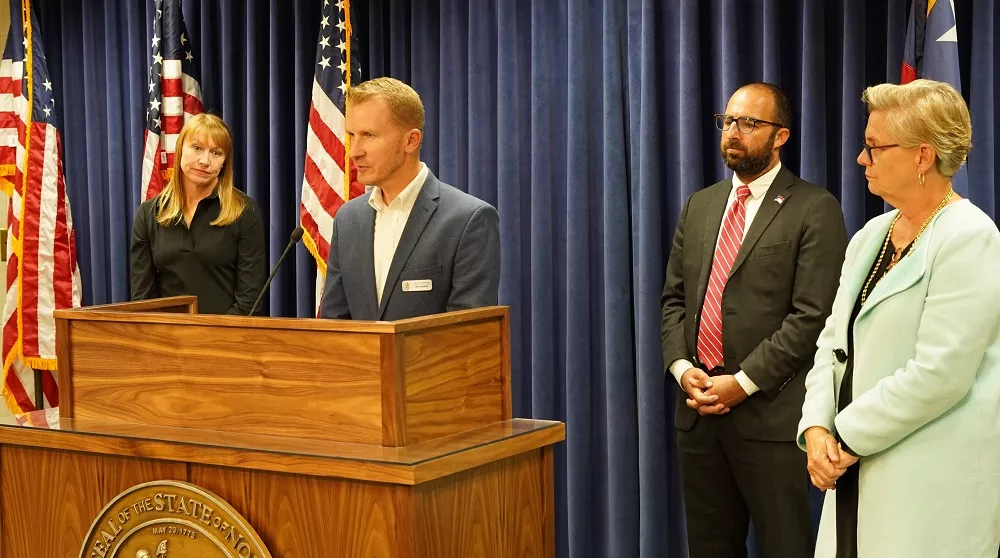North Carolina lawmakers convened on Wednesday afternoon for a scheduled session that pivoted from pending legislation to instead focus entirely on first steps in the state’s response to Hurricane Helene and the critical needs in western North Carolina.
The morning started with a tearful press conference of legislators from our mountain counties, who described the region's devastation. They also highlighted the way communities are pulling together regardless of political differences, and the promise of state aid in addressing the most urgent needs.
Later in the day, both chambers unanimously approved H149, Disaster Recover Act of 2024, which Gov. Roy Cooper signed into law the following day. Lawmakers agreed to schedule an additional mini-session on Oct. 24 to appropriate any required state match to federal disaster aid funds and deal with additional recovery needs.
H149 appropriated $273 million for disaster relief and lifted some regulatory hurdles in the rebuilding of roads, water and wastewater systems, and the burning of debris. It also amended the law to provide for the continuing payment of teachers and the funding of school nutrition programs.
Challenges to voting in December’s election were eased in the 25 affected counties, granting powers to local boards of elections to address local needs with those changes requiring a majority, bipartisan vote of local boards.
Recognizing climate change's role in the disaster
Chapter Director Chris Herndon was invited to appear with Reps. Caleb Rudow (District 116, Buncombe County) and Deb Butler (District 18, New Hanover County) at a news conference where they highlighted the need to address climate change in policymaking as we rebuild from damage by Helene and other storms, such as the "unnamed storm" that devastated Carolina Beach this summer.

Chris was joined by Brooks Rainey Pearson, legislative counsel for the Southern Environmental Law Center, in highlighting past and pending bills before the state legislature and Congress that can help us address the root causes of climate change, and ideas that can help communities recover more strongly. A news release from the event is here, and NC Newsline covered the event.
As Chris said at the news conference, "While we work nonstop in our state to help our western communities recover from this disastrous storm, we must also act to slow climate change that is bringing ever-worse weather to places like our mountains – places we used to believe were 'climate havens. …'
"Climate change and devastating weather events don't just affect North Carolina. They're national – and global – threats that must be addressed at all levels of government."